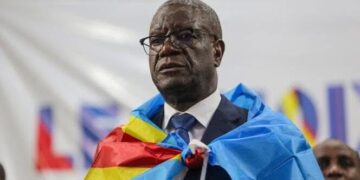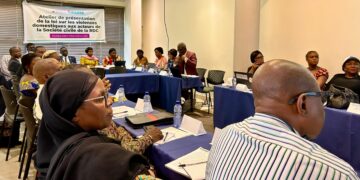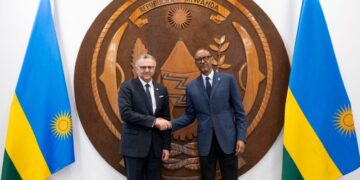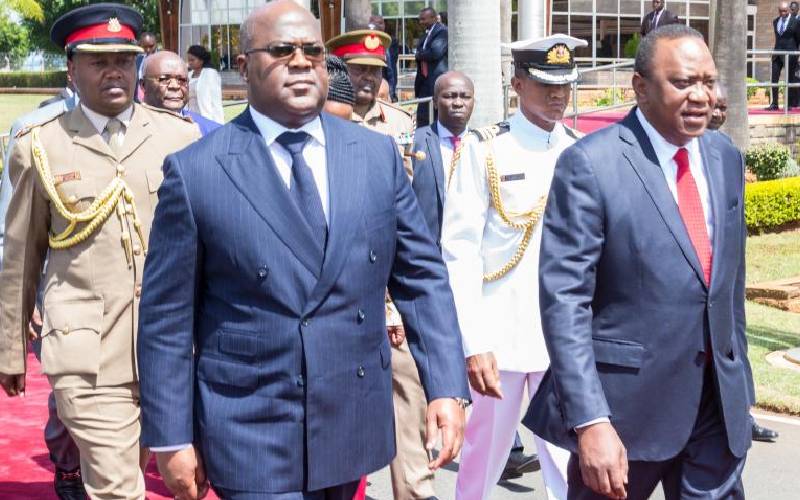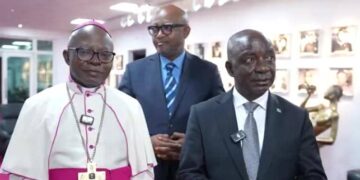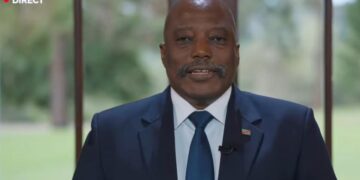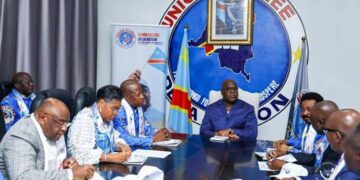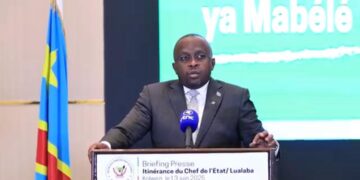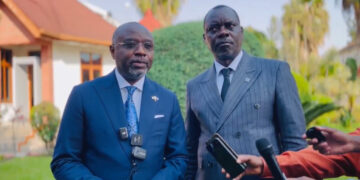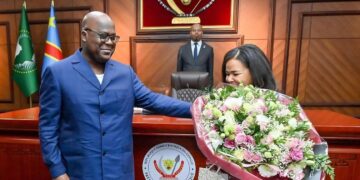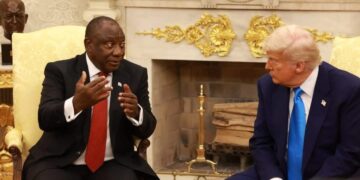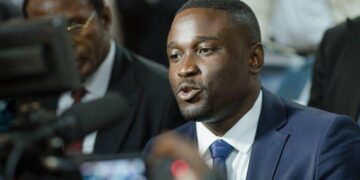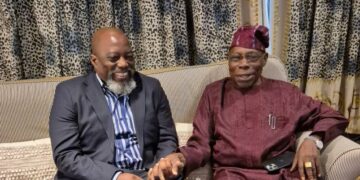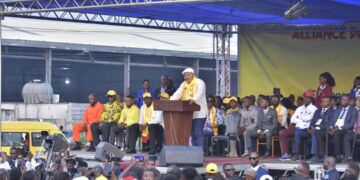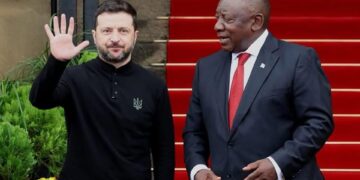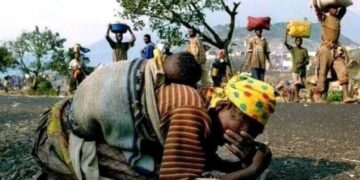Speaking during a radio interview, Epenge did not mince words as he named several prominent figures in the current government and National Assembly:
“He must stop following Jean-Pierre Lihau. Muyaya is a Kabilist down to his underwear. Muyaya was with Kabila!” he declared, also targeting national deputy Lambert Mende, a longtime ally of the former regime.
Patrick Muyaya, currently serving as Minister of Communication and Government Spokesperson, rose to prominence during the later years of Kabila’s rule. His current role as a public defender of the Tshisekedi government has made him a symbol of political continuity rather than change in the eyes of the opposition.
Jean-Pierre Lihau, Deputy Prime Minister and Minister of Public Service, is also a former senior advisor under Kabila and a member of the PPRD (People’s Party for Reconstruction and Democracy). Though now part of Tshisekedi’s Union Sacrée coalition, his political background remains closely associated with the old regime.
Lambert Mende, once a key spokesperson and Minister of Communication under Kabila, is now a national lawmaker. Though less publicly visible than before, his name remains tied to the repressive media strategies of the former administration.
A Clear Political Message to President Tshisekedi
Epenge’s comments deliver a sharp warning to President Tshisekedi: real change cannot be achieved with remnants of the old system in key positions. According to LAMUKA, Tshisekedi’s promise of breaking with past governance practices — centralized power, lack of transparency, and institutional manipulation — remains unfulfilled as long as ex-Kabila loyalists remain in government.
For the opposition, these figures symbolize a contradiction between Tshisekedi’s reformist rhetoric and the reality of his political alliances.
Is LAMUKA Repositioning Itself?
Epenge’s declaration comes as LAMUKA seeks to reassert itself on the national political stage. The coalition, weakened after the departure of key figures such as Moïse Katumbi and Jean-Pierre Bemba, now seeks to return to its original mission: radical opposition to the Kabila system and any attempt to sustain it under new labels.
By directly attacking high-profile and influential figures within Tshisekedi’s government, LAMUKA is staking a claim to be the only true voice of political rupture in the DRC.
Political Attack or Tactical Move?
Some analysts interpret Epenge’s media offensive as part of a strategy to bring LAMUKA back into public focus and to position himself as a central figure in the opposition ahead of upcoming electoral cycles. The accusations of “active Kabilism” could also spark renewed debate within the ruling coalition about its ideological coherence and commitment to change.
So far, those targeted by Epenge particularly Muyaya and Lihau have not publicly responded, but the controversy could place additional pressure on the Union Sacrée to clarify its identity and direction.
Prince Epenge’s remarks highlight how the legacy of Kabilism continues to influence Congolese politics. Even after two presidential transitions, the question of political heritage, loyalty, and genuine change remains unresolved. For President Tshisekedi, this marks not just a challenge of governance, but of credibility both in the eyes of his allies and the wider public.


